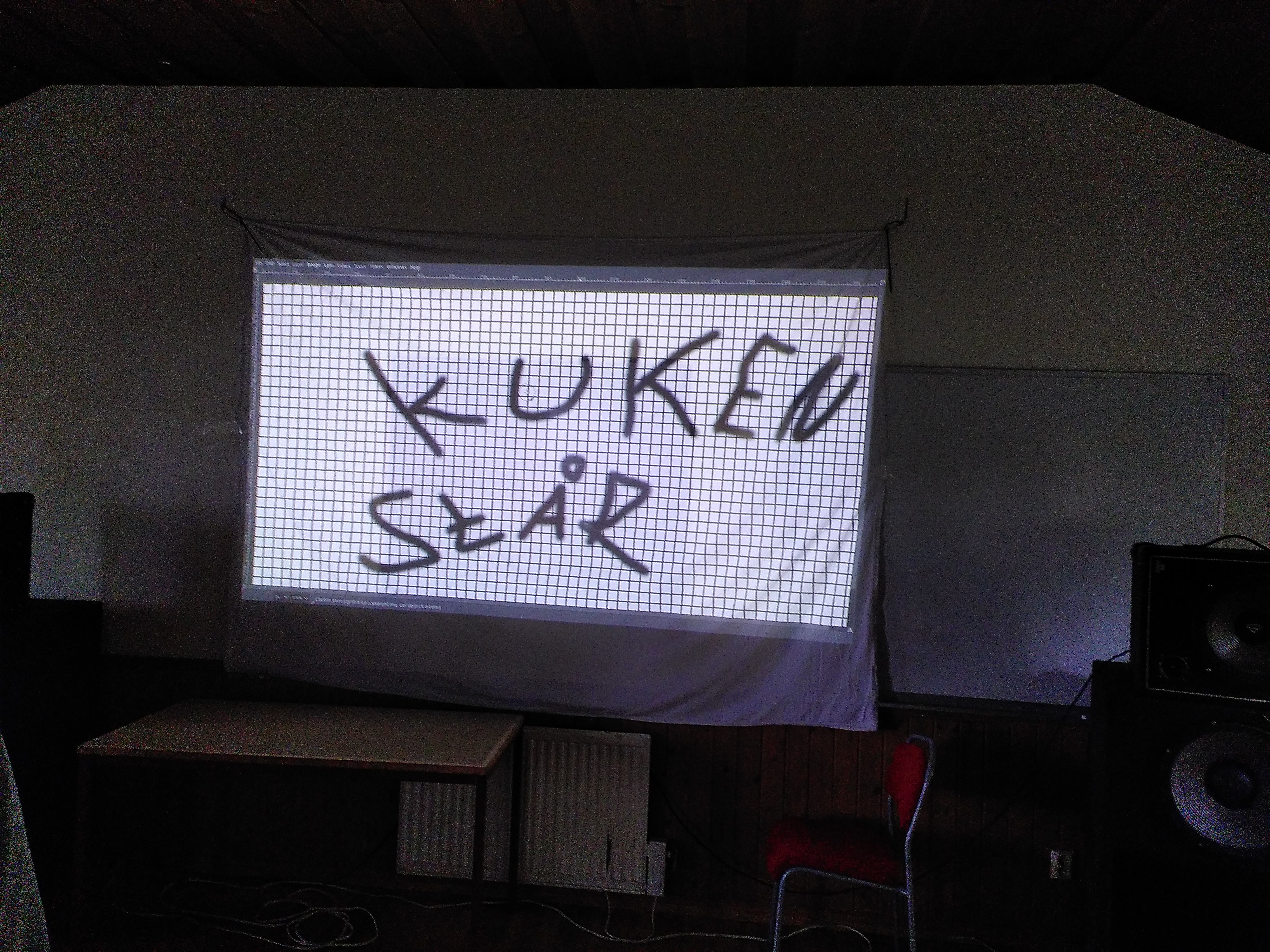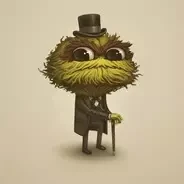Give me your wordplay and obscure culture references, I love them all.
Finland and sweden were having a competition about which language is the most beautiful. Finland was let to choose the sentence and “saari, saari, heinäsaari, heinäsaaren neito”. In swedish its “Ö, ö, hö ö, hö ö mö”
(in english its “island, island, grassy island, grassy island’s maiden”)
I hope this isn’t racist as I never thought it was. Best told to an English speaker who only speaks that one language.
A Chinese man is walking down the street and he notices a Chinese friend of his on the other side of the street, walking the opposite way. He yells across the street to his friend “(do fake Chinese talk)”. His friend yells back “(more fake Chinese talk)”. He answers him back with more fake Chinese talk while starting to laugh. He then laughs like a loon as if it is the best joke he’s ever heard.
There is no joke to get but only pretending there was one. Stupid and absurd, I know.
Hibbedi bobbedi hopfn, jetzt hoats a mal dei Fotzn.
After the workers are finished, Mandy from Saxony comes home to see the result of the house renovation.
The entire floor is covered in white bread.
She shouts “What’s this? I wanted parquet flooring, not baguette flooring!”(Parquet and Baguette are pronounced exactly the same in Saxonian dialect)
“Was ist der Unterschied zwischen Schach und Billard?” - “Beim Schach hat man den Kö nich.”
“What’s the difference between chess and billiards?” - Answer is a pun, can mean both “In chess, you have the king.” and “In chess, you don’t have the cue.” Doesn’t translate at all.
An Ulster Scots one:
“Ballymena mawn went uptae glens in Canadae yin dae”
“An he saa tae yer man in the pub: What’s that thaer on tha wall?”
"An the publickan saa “Why, That’s a moose”
"Ballymena man saa: “Aye? That a moose? Sure, if thats a moose then yer cats must be wile big!” "
As a Canadian in Scotland, this is the number one joke I’m told by Scots. Closely followed by the statement “I’ve a (cousin/sister/brother/uncle/auntie etc) in Canada.” I swear, it’s probably 1 in 3 Scots with family in Canada.
Here’s one which only works if you know BOTH Portuguese and English:
“In Portugal it’s very common for old ladies to go to a coffee place and ask for a big cock”
(Explanation: the Portuguese word for milk with coffee - “galão” - also means “big rooster”. Those are the only two meanings it has in that language. However when you translate it to English you can use a certain synonym for “rooster” which can be read as having another, very different, meaning)
life is like a cucumber, sometime in your hand sometime in your ass. Arabic/Sudanese dialect
el eisha zey el ajoura, mara fi eedak, mara fi teezahk
……
what am i doing with my life 🙈
Two divers meet. One say “Hi” the other says “where?!”
Two hunters meet. Both of them are dead.
Which language of origin?
German:
-
Joke: “Hi” is spoke like “Hai” German for shark. So when two divers meet and one says hi, the other thinks, where is the shark??
-
Joke: “to meet” is translated in german as treffen. Treffen can also the mean to hit. So the joke goes from a freindly meet up between hunters to both of them hitting eachother while on the hunt and dying.
We also say hai in Finnish for shark
That is so incredibly german, holy shit.
It works in Norwegian as well, both of them.
But for the shark one in Norwegian there’s this one:
What did the sand say to the shark? Hihi
What did the shark say to the sand? Hi sand
isnt it haifisch? rammstein vocabulary sorry
Haifisch is also correct but less commonly used. Sounds a bit old-timey, my first association is Mackie Messer (Mac the Knife): “Und der Haifisch, der hat Zähne”.
that song is actually pretty killer, pun intended…
the rammstein lyrics are also pretty dope:
Und der Haifisch, der hat Tränen Und die laufen vom Gesicht, doch der Haifisch lebt im Wasser – so die Tränen sieht man nicht.
cool little song also
deleted by creator
-
Hai (similar pronunciation as hi) = shark
German.
Both of these work in Swedish as well
hai, lika i svenska?
Dutch: Er liep een man in de woestijn en die vond een kameel, maar de kameel vond van niet.
English: A man was walking in the desert and he found a camel, but the camel found he hadn’t.
I don’t know, maybe it works in English too.
I don’t get it, and I speak Dutch…
Sorry, can’t help you there. There’s nothing less funny than explaining jokes, except maybe this joke…
Well, OP didn’t specify good jokes…
[off topic?]
Yiddish. Does not translate to Christian.
Old man goes to the same lunch counter every day and orders the exact same meal every time. Tuna fish salad on rye toast and tomato soup.
One day he walks in and orders his meal. The waiter brings it.
“Waiter, I want you to try this soup.”
“I’m sorry sir, I’ll get you a different bowl.”
“No, I want you to try this soup!”
“I’ll get the manager.”
“No, I want you to try this soup!”
This goes on for five minutes and finally the waiter gives up.
“Okay, I’ll try the soup. Where’s the spoon?”
“Aha!”
This works better when spoken with the appropriate inflections.
Nu?
What really translates here for me is how exhausting customers can be.
If the server forgot to bring a spoon you could have just said that five minutes ago while the soup was still hot.
you could have just said
No, you could not, and that’s what makes it a Jiddish joke. It’s cultural, not linguistic.
As a stupid curious person, why couldn’t you just say that in Yiddish? Aside from how it wouldn’t be a funny joke anymore lol.
I don’t know about Yiddish culture, but there are a lot of cultures where it would be considered extremely improper to tell someone they made a mistake because this would ring shame on them – complaining to a superior even more so. In these cultures, you have to resort to such indirect clues as described in the joke to communicate complaints.
As I understand it, this joke describes the a clash between shame based and guilt based cultures making fun of both.
FYI…you might want to edit. Or not, because it’s funny that way.
I didn’t know this joke had Yiddish origins. Funnily enough, it was told to me by my Jewish grandmother when she was explaining in a convoluted way that I should sweep before mopping 🤣.
One time, between classes we got on the topic of ethnic humor. The guy I told the joke to looked at me like I was insane, but the Russian immigrant woman who overheard it laughed. Someone else told me that Southern US folks would get it.
I mean, Christians eat soup, too.
It just comes from cans instead of waiters.
German joke with word play: " ‘Nur noch schnell einen runter holen, dann ist Mittag’ - Karl Heinz (Flackschütze)"
Flak ohne ck (von FLugAbwehrKanone)
Legastenie lässt grüßen
“Hello, I’d like one of those smurfs from up on that shelf, please.”
“Want me to get one down for you?”
“Sure, if I can get a smurf in return?”
Spanish:
–Señor, mi mamá quiere saber qué vende.
–Dile a tu mamá que ceviche.
English:
–Mister, my mom wants to know what are you selling.
–Tell to your mom that ceviche.
Ceviche is, well, ceviche. In north west of México, we often say “vichi” to say “nude”. “vicharse” would be “get naked”, so “Dile a tu mamá que ceviche” can be a pun for “dile a tu mamá que se viche” (Tell to your mom that get naked)
Que le dijo un pez a otro pez?
Nada!What did one fish say to the other? Nothing(/Swim)!
Una estrella estrellada
Un león comió jabón. Ahora, es puma/espuma.
I get it. The spanish wordt for swimming is “nadar”, which sounds almost the same. Seems like DuoLingo isn’t completely useless after all.
Imperative conjugation of nadar is nada
Not a spanish speaker but isn’t ‘nada’ also swim, as in a command to?
Spanish wordplay: ¿Por qué está feliz la escoba? Porque siempre barriendo.
Translation: Why is the broom happy? Because it’s always sweeping (barriendo = sweeping, sounds like va riendo = goes around laughing)
El pan está blando ¿Y qué dice?
Oye, esa oración no tiene sen—ooooooh. 🙈
No matter how sloshed you may be, Goethe was a poet.
Tap for spoiler
“Dicht” is a word for “drunk/pissed/sloshed”. “Dichter” is both “poet” and “more sloshed”.
Oh God there are so many of these.
No matter how young your friends are, Jesus’s friends were apostles.
No matter how well you drive, trains drive freight.
No matter how empty you feel, remember, there others who are teachers (this one works out unexpectedly well)
No matter how well you drive, trains drive freight.
I didn’t know that one and it makes me so happyyy yaaay :D














